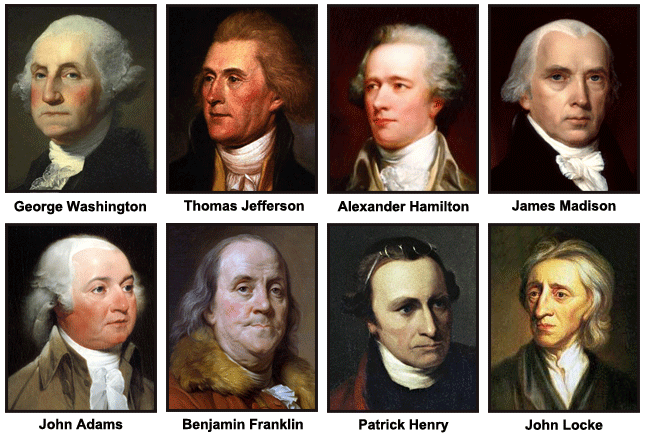

In 1776, George Washington was the Commander-in-Chief of the Continental Army. After successfully defending Boston earlier in the year, Washington spent June and July preparing New York City for attack. While pleased with the Declaration of Independence, he mostly wanted the Continental Congress to send him more men and supplies.
A 33-year-old "boy genius" during the Second Continental Congress, Jefferson assumed the primary responsibility for writing the Declaration of Independence. His enormous intellect allowed him to distill hundreds of years of political tradition into a few beautifully crafted paragraphs.
In 1776, Hamilton was a young, relatively unknown merchant serving as captain of a New York artillery company that he helped raise. In a year, his bravery, organizational skill, and knowledge of military tactics would get the attention of the senior leadership. Washington named him his aide-de-camp, or personal assistant, for the remainder of the war.
While the delegates were debating independence in Philadelphia, the 25-year-old Madison had just been elected to the Virginia House of Burgesses. The 5'4' "Little Jemmy" Madison quickly became a protégé of Thomas Jefferson and became prominent in state politics with a natural gift for coalition building.
John Adams was one of the most prominent delegates in the Continental Congress. He nominated Washington to serve as commander-in-chief. A member of the committee to write the Declaration of Independence, he insisted that Jefferson write the draft and gave Jefferson advice on the document.
In 1776, "Dr. Franklin" was probably the United States' most famous citizen and a supporter of independence. At the Continental Congress, Franklin was on the committee that drafted the Declaration of Independence. He was too sick to do much work on the document, though he made some edits to Jefferson's draft.
Aside from representing Virginia at the Continental Congress, Henry had little direct involvement in writing the Declaration of Independence. However, he had a major role in convincing the colonies to separate from England. A powerful orator, his "Give me Liberty or Give me Death!" speech to the Virginia House of Burgesses became renowned throughout the colonies and remains a rallying cry for those seeking freedom.
Locke was an English philosopher from the late 17th century. Some of the ideas contained in the Declaration of Independence can be found in his Second Treatise of Government.